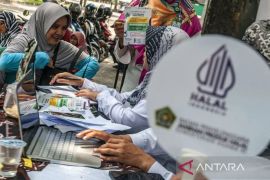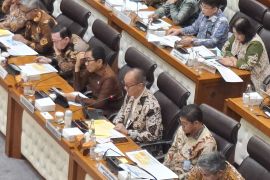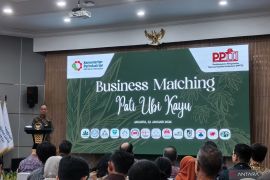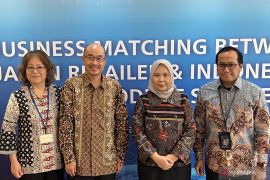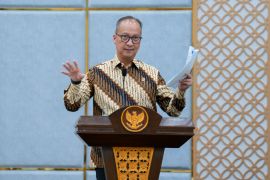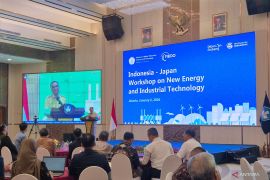The official sales ban stems from Apple's failure to extend the Domestic Component Level (TKDN) certification.
TKDN certification is an absolute requirement for all manufacturers of mobile phones, handheld computers, and tablets (HKT) in order to market their products in Indonesia.
Based on the Regulation of the Minister of Industry (Permenperin) Number 29 of 2017 concerning Provisions and Procedures for Calculating the Domestic Component Level Value, three investment schemes can be taken by HKT manufacturers to obtain TKDN certification to sell their products legally.
The first scheme is the construction of production or manufacturing facilities directly related to HKT components, while the second scheme is the creation of applications or software domestically, and the third emphasizes innovation by prioritizing research and development (RnD).
Currently, Apple has been able to sell its products in Indonesia by investing in the third scheme, specifically through innovation in the form of building the Apple Academy.
Under that scheme, the company is still required to extend the TKDN certification every three years.
The company has launched four Apple Academies across Indonesia: the Apple Developer Academy at Binus BSD, Tangerang; the Apple Academy at Ciputra University, Surabaya; the Apple Developer Academy at Infinite Learning, Batam; and the Apple Academy in Bali.
Nation’s pride
In seeking to extend its TKDN certification for the 2024-2026 period to sell iPhone 16 products in Indonesia, Apple initially proposed an investment of US$100 million to the Industry Ministry.
However, Industry Minister Agus Gumiwang Kartasasmita found that the proposal failed to comply with technocratic calculations by prioritizing the four principles of justice.
The four principles encompass a comparison of Apple's investment in other countries; a comparison of investment in other brands of mobile phones, handheld computers, and tablets (HKT) in the country; the creation of added value and state revenue; and jobs created from the investment realization.
Apple’s investment value is deemed incomparable to its sales performance in Indonesia.
In 2023, Apple sold 2.61 million iPhones, generating over Rp30 trillion (US$1.7 billion) and establishing Indonesia as its largest market in Southeast Asia.
When compared to other countries in the ASEAN region, Apple was found to disburse larger funds. In contrast, Apple's investment in Vietnam amounted to US$15.84 billion, creating jobs for 200 thousand people.
Apple’s products sold in Vietnam were only recorded at 1.43 million units, which is 1.18 million less than its sales figures in Indonesia.
After the Industry Ministry rejected the US$100 million proposal, the Indonesian government invited Apple to negotiate directly regarding the extension of the TKDN certification.
On January 7, Apple's Vice President of Global Policy, Nick Amman, arrived in Indonesia to negotiate with the Industry Ministry and Investment and Downstream Ministry.
Apple engaged in discussions with each ministry regarding the extension of the TKDN certification and its investment plans in Indonesia.
From the results of the technical team's negotiations, the government provided a counter proposal for Apple as the proposed investment plan did not align with the four principles of justice.
National Research and Innovation Agency (BRIN) researcher Bachtiar Rifai stated that Apple's investment in Indonesia should be at least one-third of the total investment disbursed by the company in Vietnam, or around US$5 billion.
The company has expressed its commitment to the Investment and Downstream Ministry to build an AirTag accessory production facility in Batam, with a proposed investment of US$1 billion.
However, referring to the Regulation of the Industry Minister Number 29 of 2017, Apple’s investment plan does not qualify under any TKDN extension scheme category since AirTags are accessories and not integral components of mobile phones.
Hence, negotiations between the Ministry of Industry and Apple to obtain TKDN certification are ongoing.
The government did not set a time limit in the negotiation process, as it sought appropriate funding commitments from the company.
Sanctions imposed
In addition to the obligation to extend the TKDN certification, Apple still owes a remaining investment debt of US$10 million from its TKDN extension commitment in the previous period.
Apple has pledged to settle the debt, while the Indonesian government has appointed a third party to review the debt repayment documents and will conduct an audit of all Apple Academies.
Since the 2018-2023 period, Indonesia has viewed Apple as being less compliant with its TKDN extension innovation scheme.
The government said Apple has only been practicing education and training activities without including research and development.
Without timely RnD and debt payment, sanctions in the form of revocation of the TKDN value for Apple’s products could be enforced.
Tough negotiations and the government's resolute stance indicate that Indonesia is not a nation easily dictated by any party, particularly a company.
By prioritizing the principle of the greatest benefit to the community, the government hopes that Apple’s investment realization would help improve the country’s economy.
Related news: Expect Apple to invest more in Indonesia: Minister Hafid
Related news: Apple to build AirTag factory in Indonesia: govt
Related news: Ministry still negotiating investment plan with Apple
Translator: Ahmad Muzdaffar, Resinta Sulistiyandari
Editor: Azis Kurmala
Copyright © ANTARA 2025

